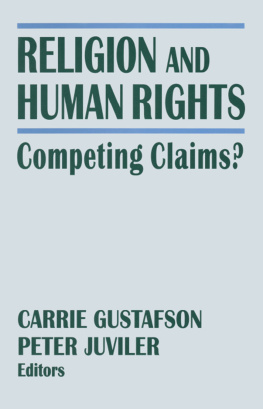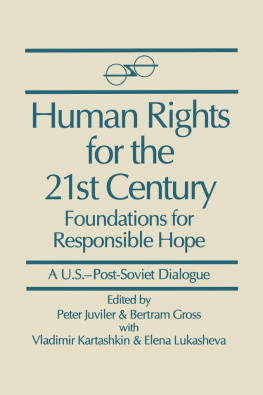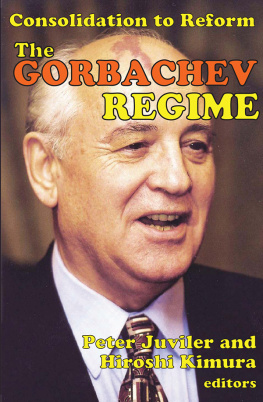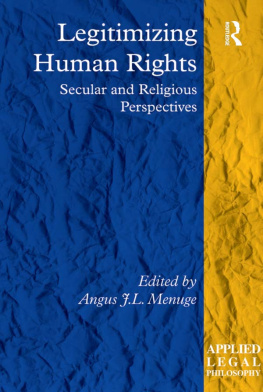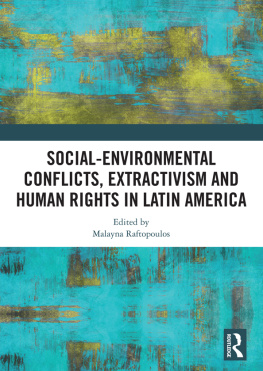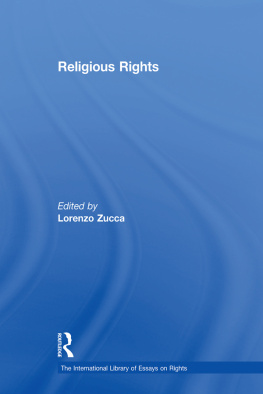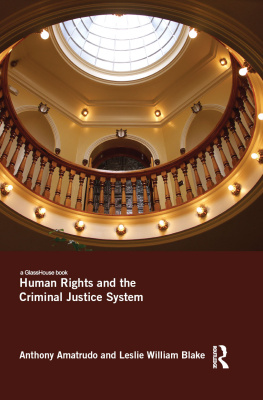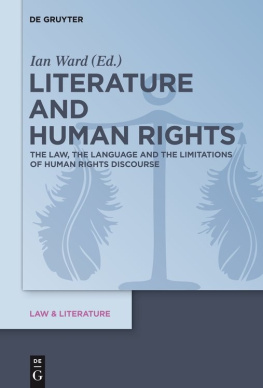RELIGION AND HUMAN RIGHTS
COLUMBIA UNIVERSITY SEMINAR SERIES
The University Seminars at Columbia University welcomes this study, Religion and Human Rights: Competing Claims? edited by Carrie Gustafson and Peter Juviler, to the Columbia University Seminars Series. The study has benefited from Seminar discussions and reflects the advantages of scholarly exchange provided by the Seminar Movement.
Aaron W. Warner
Director, University Seminars
Columbia University
THE FUTURE OF AMERICAN BANKING
James R. Barth, R. Dan Brumbaugh, Jr., and Robert E. Litan
THE EVOLUTION OF U.S. FINANCE, VOLUME I
FEDERAL RESERVE MONETARY POLICY: 19151935
Jane W. DArista
THE EVOLUTION OF U.S. FINANCE, VOLUME II
RESTRUCTURING INSTITUTIONS AND MARKETS
Jane W. DArista
HOW CREDIT-MONEY SHAPES THE ECONOMY
THE UNITED STATES IN A GLOBAL SYSTEM
Robert Guttmann
THE ANTITRUST IMPULSE, VOLUMES I AND II
AN ECONOMIC, HISTORICAL, AND LEGAL ANALYSIS
Theodore P. Kovaleff, editor
FROM MALTHUS TO THE CLUB OF ROME AND BACK
PROBLEMS OF LIMITS TO GROWTH, POPULATION CONTROL, AND MIGRATIONS
Paul Neurath
TOWARD SUSTAINABLE DEVELOPMENT?
STRUGGLING OVER INDIAS NARMADA RIVER
William F. Fisher, editor
DEBT, CRISIS, AND RECOVERY
THE 1930S AND THE 1990S
Albert G. Hart and Perry Mehrling
CHANGING STRUCTURE OF MEXICO
POLITICAL, SOCIAL, AND ECONOMIC PROSPECTS
Laura Randall, editor
REFORMING MEXICOS AGRARIAN REFORM
Laura Randall, editor
RELIGION AND HUMAN RIGHTS
COMPETING CLAIMS?
Carrie Gustafson and Peter Juviler, editors
RELIGION AND HUMAN RIGHTS
Competing Claims?
CARRIE GUSTAFSON PETER JUVILER
Editors
First published 1999 by M.E. Sharpe
Published 2015 by Routledge
2 Park Square, Milton Park, Abingdon, Oxon 0X14 4RN
711 Third Avenue, New York, NY 10017, USA
Routledge is an imprint of the Taylor & Francis Group, an informa business
Copyright 1999 Taylor & Francis. All rights reserved.
No part of this book may be reprinted or reproduced or utilised in any form or by any electronic, mechanical, or other means, now known or hereafter invented, including photocopying and recording, or in any information storage or retrieval system, without permission in writing from the publishers.
Notices
No responsibility is assumed by the publisher for any injury and/or damage to persons or property as a matter of products liability, negligence or otherwise, or from any use of operation of any methods, products, instructions or ideas contained in the material herein.
Practitioners and researchers must always rely on their own experience and knowledge in evaluating and using any information, methods, compounds, or experiments described herein. In using such information or methods they should be mindful of their own safety and the safety of others, including parties for whom they have a professional responsibility.
Product or corporate names may be trademarks or registered trademarks, and are used only for identification and explanation without intent to infringe.
Library of Congress Cataloging-in-Publication Data
Religion and human rights : competing claims? Carrie Gustafson and Peter Juviler, editors,
p. cm. (Columbia University seminar series)
Includes bibliographical references and index.
ISBN 076560261X (alk. paper). ISBN 0765602628 (pbk.: alk. paper)
1. Human rightsReligious aspects. I. Gustafson, Carrie, 1966. II. Juviler, Peter H. III. Series.
BL65.H78R44 1998
291.177dc21 9821719
CIP
ISBN 13: 9780765602626 (pbk)
ISBN 13: 9780765602619 (hbk)
To Professor Louis Henkin, who inspires so many.
Contents
Donald W. Shriver Jr.
Peter Juviler
Max L. Stackhouse
Louis Henkin
Larry Rasmussen
Patricia A. Daly
Margaret E. Crahan
James F. Joyce
Carrie Gustafson
Kenneth Anderson
Arati Rao
Julie Stone Peters
Blu Greenberg
Alan F.Segal
Ann Elizabeth Mayer
Two hundred years ago, Immanuel Kant testified to the two realities that held him in awe: the starry heavens above and the moral law within each human being. Like other philosophers of the European Enlightenment, Kant was not astronomically intimidatable. Whatever the size of the galaxies, humans had a special relation to it all: a rationality that relates them to something ultimately precious in the universe.
These two centuries later many of us would like to emulate this Kantian confidence, but we are burdened with two difficulties: We are less sure of our unique status in that very large universe, and we are even less sure that as members of the same species we all have access to that moral law within.
To be sure, in this fiftieth anniversary year of the adoption by the United Nations of its Universal Declaration of Human Rights, we hope for an earth-wide consensus that we humans owe profound, non-negotiable mutual respect to each other. But we have little consensus as to whether Thomas Jefferson was on firm ground when he claimed that we humans have certain inalienable rights because our divine Creator has endowed us with them. Was this Jeffersonian rhetoric decorative only? Do we have to bring God into any claim that we are to respect ourselves and each other always as ends and never as meansthe Kantian ethical maxim?
The authors of the essays in this collection are fully aware that our experience of our neighbors in this twentieth century, especially in our politics, has left us anything but confident in the moral status of human being. Where was the moral law within when the trench warfare of 1914 began? When the university-trained Nazis devised the concentration camps? When the annihilation of whole cities became standard strategy for victory in war from 1939 to 1945? When at the end of this century, as a world community, we had compiled a record for organized killing in the range of 150 million? The pre-Enlightenment French philosopher Blaise Pascal spoke of the grandeur and misery of human nature. We know about the grandeur in our moon walks, our computers, and our Declarations of Human Rights. But on some deep levels, we are haunted by the misery.
Were I to propose a test question for all the authors here, I would ask: Does your vision of human rights concepts, justifications, and enforcement do justice to both the dignity and the corruptibility of us humans? It is quite possible that religious systems have accented the corruption to the neglect of the dignity, while secular human rights thinking has accented the reverse. The latter may not agree that the democratic system of government requires advocates who take good and evil with equal seriousness, but it is hard to avoid the balance of wisdom in Reinhold Niebuhrs famous aphorism: The human capacity for justice makes democracy possible; the human inclination to injustice makes democracy necessary.
Do both religion and secularism have contributions to make to this possibility and this necessity? Most writers in this collection are cautious but hopeful on both scores. They seem to agree that the frequent antagonism between the claims of religious institutions and the claims of human rights advocates is not necessarily good for either. Like everything else in history, religion certainly has a checkered record for defining, legitimating, and implementing the rights of even its own adherents, not to speak of those who, on occasion, are considered its enemies. Error has no rights has been the maxim of many an inquisition in alliance with governmental killing of both kinds of heretics: religious and political.

